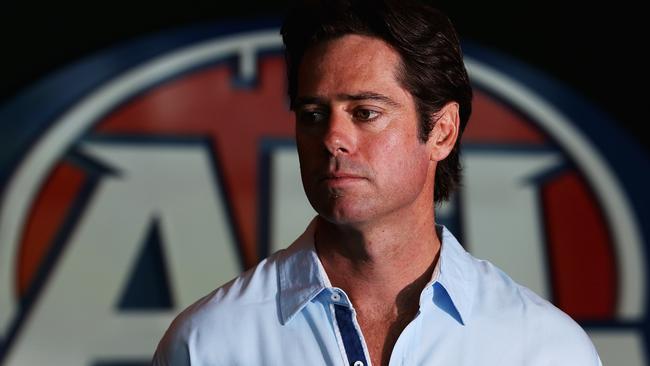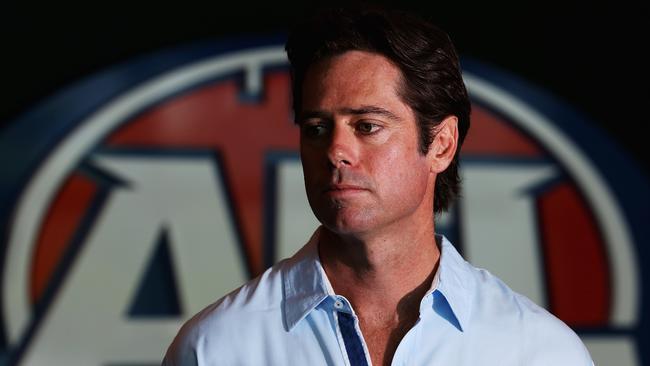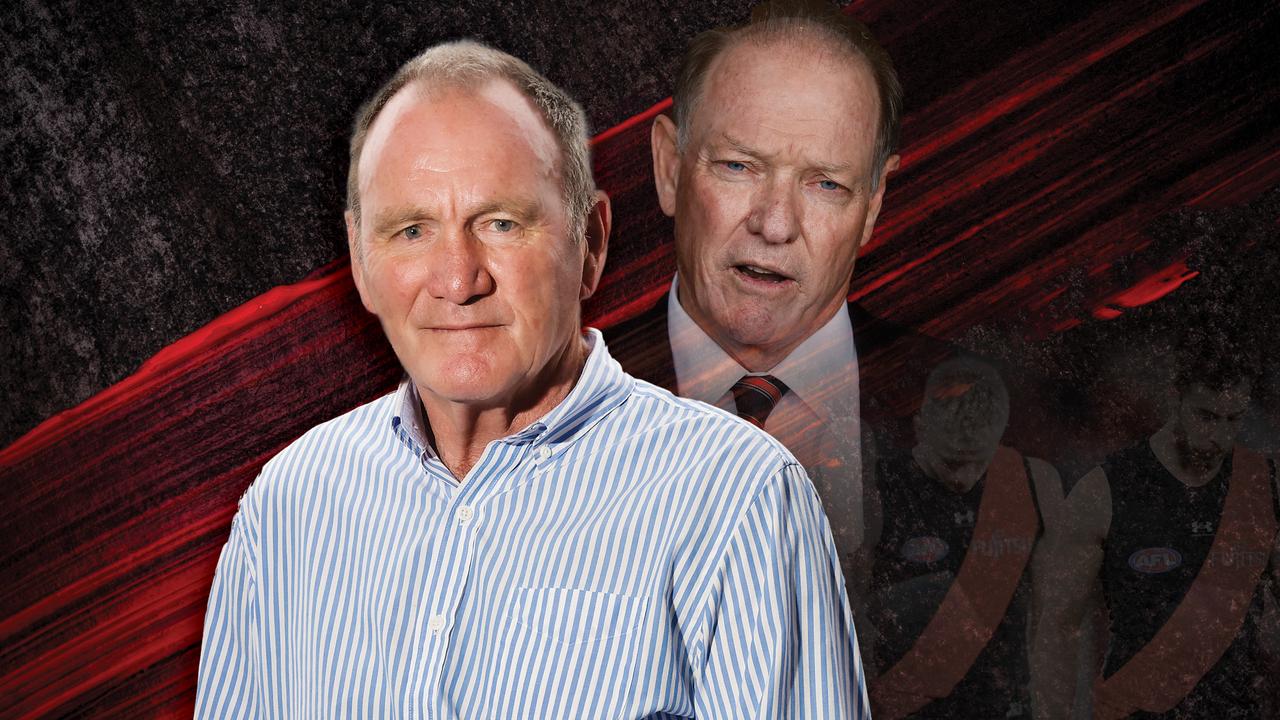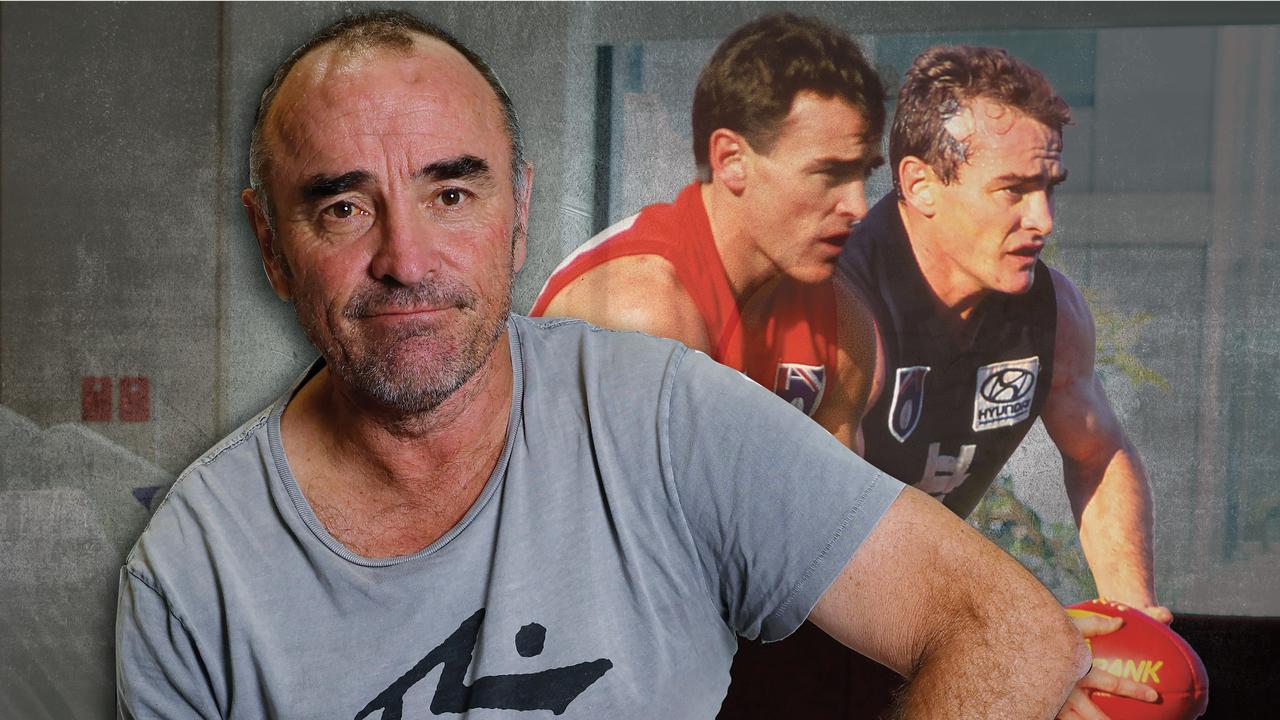AFL refuses to acknowledge that Melbourne tanked despite admissions
This isn’t about tanking or match-fixing, because we all knew it happened at the time. This isn’t about Dean Bailey, who was a scapegoat for a widespread policy. This goes right to the top, writes Mark Robinson.

Mark Robinson
Don't miss out on the headlines from Mark Robinson. Followed categories will be added to My News.
This is not about tanking or match-fixing because we all knew it happened at the time.
This is not about Dean Bailey, God bless him, who only followed orders from his superiors, and who later died of cancer.
The football folk close to Bailey, and there were many because he was a much-loved and respected man, believe the tanking scandal and his resultant suspension, contributed to his death.
To think that actually horrifies you.
No, this is about the AFL.
EXCLUSIVE: TOP-SECRET DOCUMENTS EXPOSE COVER-UP
REVEALED: SECRETS BEHIND MATCH-DAY MOVES
INTEGRITY: AFL BOSS DEFENDS TANKING PROBE
RIPPLE EFFECT: TRADES KEEP TANKING FALLOUT ALIVE
REACTION: WHAT THEY’RE SAYING ABOUT SCANDAL
Can you believe people central to the tanking investigation basically told the AFL they tanked, that they were encouraged to lose, that they were threatened to be sacked, that they feared fake injuries were in play, that players were played out of position, and the AFL didn’t recognise it as tanking?
AFL boss Gillon McLachlan once famously said: “I don’t know what the definition of tanking is.’’
But then he conceded this morning on 3AW that the Demons made decisions in 2009 with the aim of “finishing lower down the ladder’’.
That’s T-T-T-T-T-T-A-N-K-I-N-G.
READ THE INTERVIEWS HERE
The AFL, despite a mountain of confessions, says it couldn’t prove it.
Bailey told them he was threatened with the sack if the team didn’t lose games.
Yet Chris Connolly, who was football manager at the time, was suspended for 12 months and Bailey for 16 weeks.
Not for tanking, mind you, but for conduct “prejudicial to the interests of the AFL”.
The club was fined $500,000 for employing the pair.

In essence, it was match-fixing.
But the AFL would never acknowledge that, as much they wouldn’t acknowledge tanking. Why? The suspicion is it would’ve opened a can of worms in relation to its lucrative betting licences.
The mid to late-2000s was a dark period for the AFL.
Melbourne wasn’t the only club to make decisions with the aim of “finishing lower down the ladder’’ and, after the Demons were penalised, the AFL changed its priority pick rules.
Actually, this is also about Bailey.
He was arguably the scapegoat for a widespread practice of tanking and, when it’s all said and done, he was following orders.
The accusation is that this is the AFL’s greatest cover-up to protect its brand.
The greatest? Essendon people would probably beg to differ.


